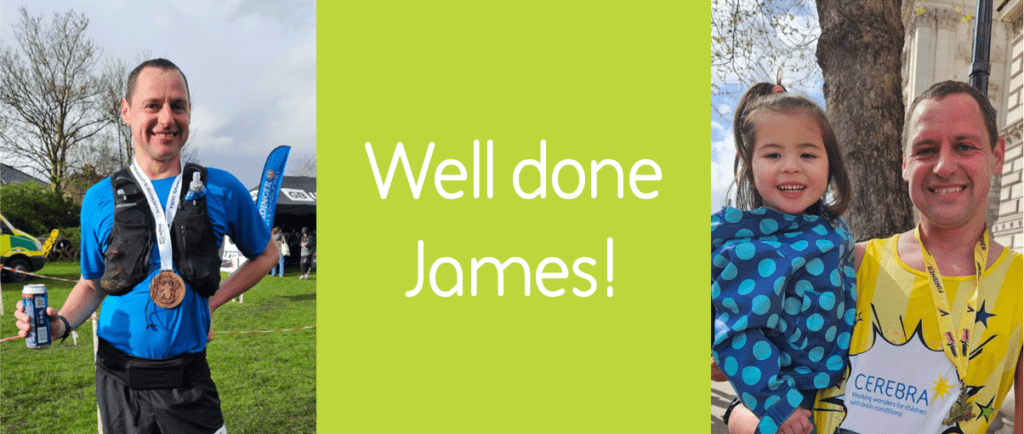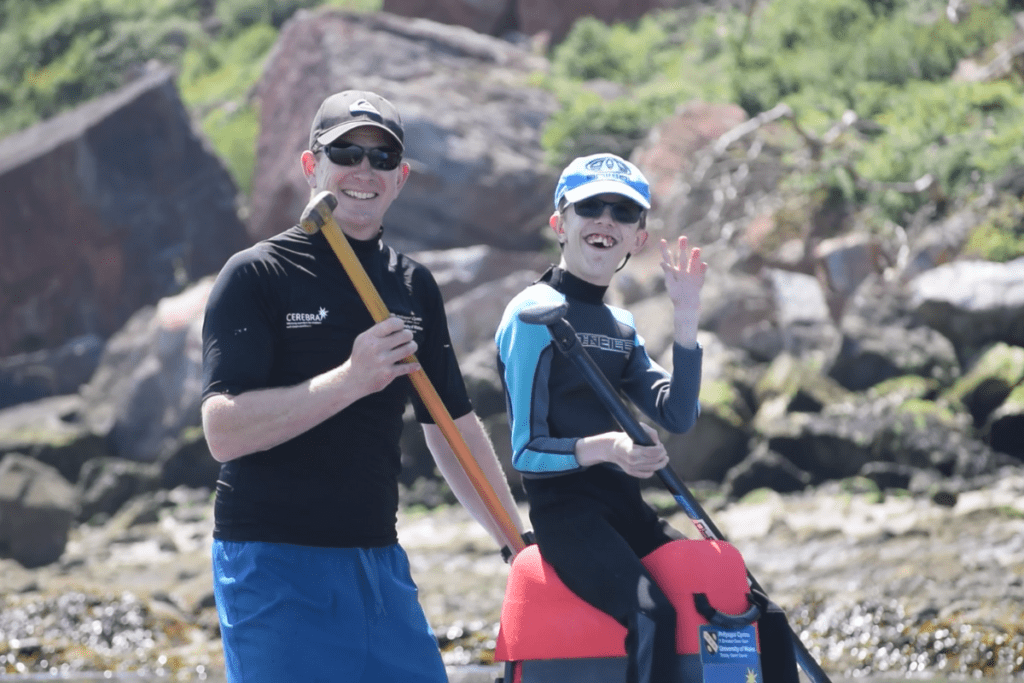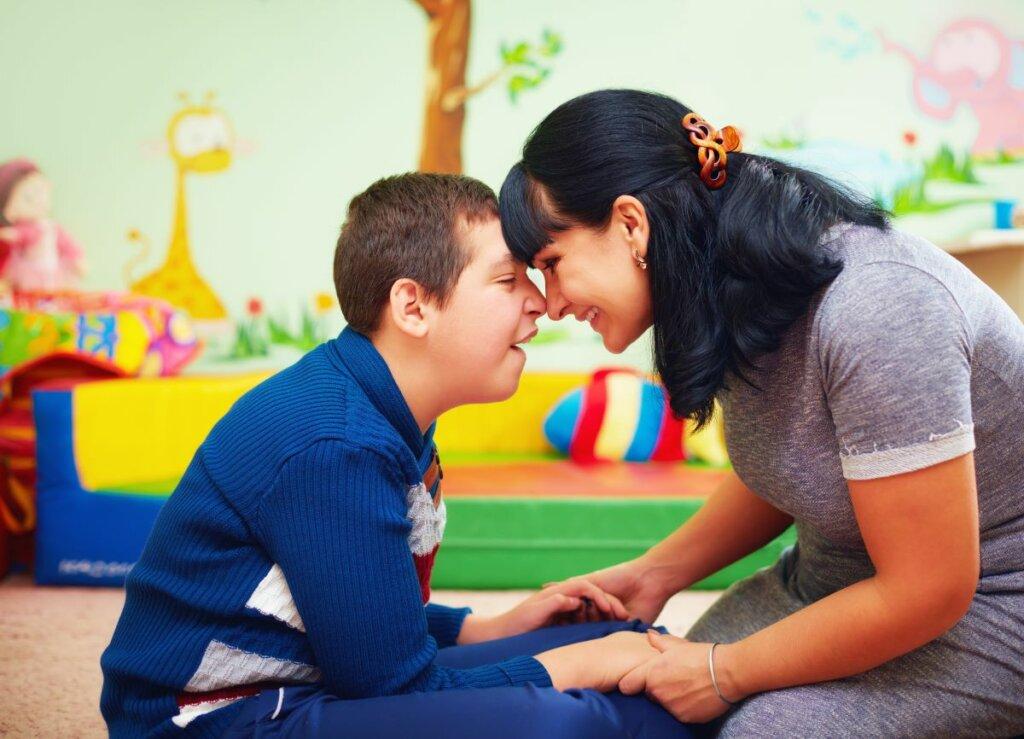In this article we take a look at our Legal Entitlements and Problem-Solving (LEaP) Project – why we started it, what we do, what we’ve achieved so far and the longer term impact of our work.
Why we started the Project
Disabled children and their families sometimes need extra support in order to have a normal everyday life – for example, help with bathing or eating, moving around or communicating. Local councils and the NHS have legal duties to meet these needs by providing support, such as someone to help with personal care at home, specialist equipment, adaptations, short breaks or therapy services. However, we know from our work with families that, in practice, parents often struggle to get the right support for their children and a lack of support can harm the health and well-being of the whole family.
The LEaP Project aims to find out why families struggle to get the help that they’re legally entitled to and what can be done to change things. We want to learn more about the problems families face, so that we can work out ways of overcoming them and helping families to get the support they need. The Project is led by Luke Clements, Professor of Law and Social Justice at the University of Leeds.
What we do
We invite families to tell us about the problems they face in getting the support they need. With expert support from the team at the University, we provide legal information and advice to help families overcome those difficulties. We help families to understand what their legal rights are and what they can do if they fail to get the support they need. We also use the information we get from individual cases to write template letters, factsheets and guides, which can help other families in similar situations.
When we see from our casework that several families are having similar problems, we ask our student volunteers at Leeds to study this problem in more detail (often by doing a survey) and then produce a report with ideas about how policy and practice can be changed to avoid these problems in the future. Past projects have looked at short breaks, school transport and disabled facilities grants.
Then we use the knowledge gained from our advice casework and student-led projects to improve our understanding of why these legal problems occur and to work out practical ways of overcoming them. We want to find out which problem-solving techniques help families to cope better with the challenges they face and how councils and the NHS can change the way they work.
What we’ve achieved so far
(1) We’ve attracted funding from the Economic and Social Research Council and from Leeds University, which has enabled us to fund a PhD student, develop our Problem-Solving Toolkit (see below) and fund a research assistant post at the University.
(2) In 2013 and 2014, we published compilations of our advice letters (the ‘Digests of Opinions’) to help other families in similar situations.
(3) In 2016, we published a report about ‘short breaks statements’ (these statements are published by councils in England and explain how families can get breaks from their caring responsibilities). The report considered how accessible and accurate these statements were.
(4) We published a guide for families in 2016 called the “Accessing Public Services Toolkit”. The Toolkit describes some of the common problems families face in dealing with councils and the NHS and suggests ways of solving those problems. A second edition was published in 2017, along with a separate version for families in Scotland. We’ve developed an ongoing programme of workshops across the U.K. to share the Toolkit with parent groups.
(5) In 2017, the student volunteers at Leeds interviewed a small number of families who had applied for a disabled facilities grant to pay for home adaptations. We published a report called “Disabled Children and the Cost Effectiveness of Home Adaptations and Disabled Facilities Grants”, which considered the benefits of investing in these adaptations, including cost savings and improvements in families’ well-being. The report was launched at a conference at the University of Leeds on 12 July 2017 and resulted in meetings with senior members of Leeds City Council, the NHS Leeds Clinical Commissioning Group Partnership and Foundations (the national body for Home Improvement Agencies), along with an article in the Guardian newspaper.
(6) On 12 July 2017, the Project Team also launched a research report called “Local Authority Home to School Online Transport Policies: Accessibility and Accuracy”. This report explains how difficult it is for families to find accurate information about school transport on council websites and how some transport policies are more restrictive than they should be. As a result of the report, the team met with representatives from the Department of Education and worked with the charity, Contact, on their inquiry into school transport, including giving evidence to a select committee at Parliament. The Department for Education has decided to review its guidance for councils on school transport and it is planning to produce an accessible template for council websites, so that school transport information is more easily available to families. The team has been asked to share its research data with the Department to help with this work.
(7) As a result of our casework, the Welsh Government has agreed to make its guidance on continence products more clear, so that families are no longer told that they can only have a maximum of 4 products a day.
(8) We’ve helped families in England and Wales get the services they need – and persuaded councils to change their policies so that other families aren’t disadvantaged. We’ve built on our casework by publishing parent guides, for example on school transport for England and Wales, so that we can share the lessons we’ve learned with many more families. We’ve also published a series of template letters and factsheets for parents to use.
Longer term impact of our research
We know that our work with families helps them to develop the knowledge, confidence and skills they need to get support:
- “Thank you for all your help and support. I don’t think I would have got anywhere without it.”
- “We appreciate the continued support to empower us to go through this process.”
- “I really do appreciate your support. I hadn’t realised there was so much info available to research.”
We will continue to support families and draw on their experiences to help us plan our research and publish resources which help other families in similar situations.
In 2018, our student volunteers will look at three research topics – how difficult it is to apply for a disabled facilities grant, how well the direct payments system works for disabled people and what social care charges disabled people have to pay for their care costs.
We also want to investigate how policies and practices within councils and the NHS can sometimes make it more difficult for families to get the support that they’re entitled to. We’re developing a detailed research plan, which will involve working with councils and the NHS to explore why these barriers exist and what can be done to remove them. We hope to get grant funding in 2018 for this important study, so that we can help to introduce changes within these organisations which will make it easier for more families to get the support they need.
You can find out more about our LEaP project here.







